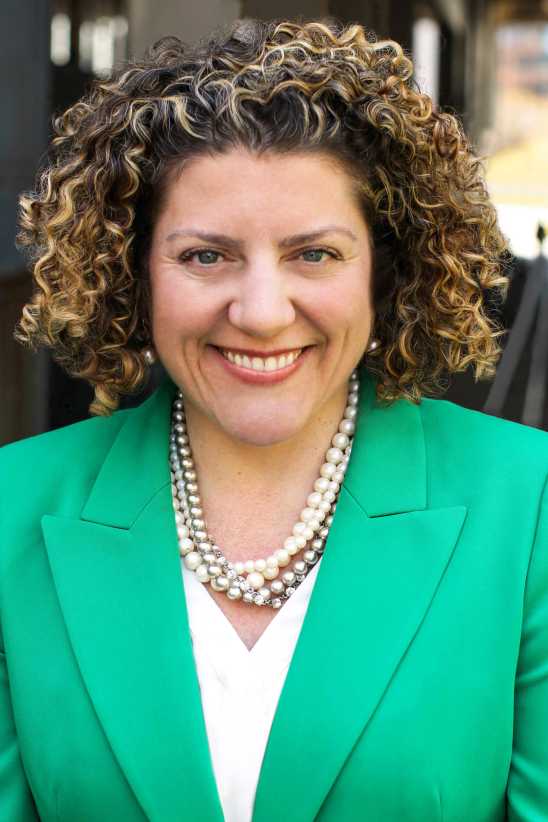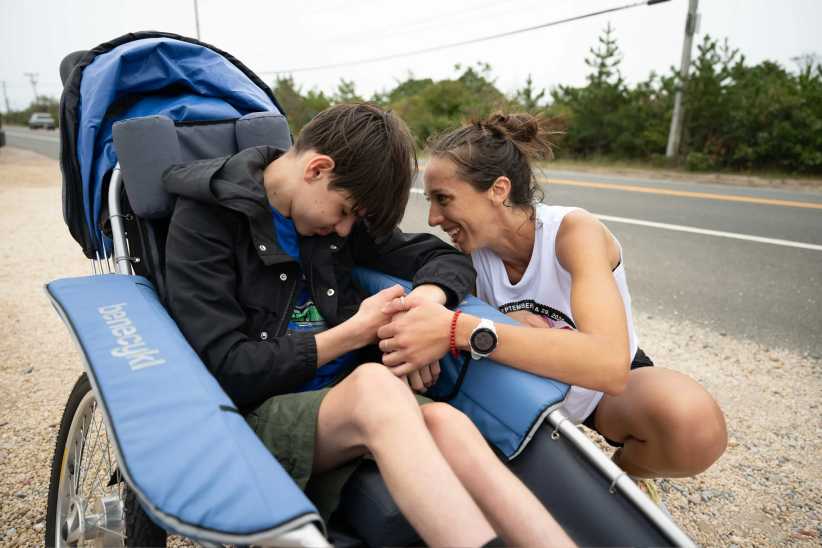
Deputy Chancellor Christina Foti Wants Education to Be Accessible for Everyone
The NYC schools deputy chancellor shares new initiatives for education and students with special needs.
New York City is renowned for its exceptional education system. From charter schools to public schools, families rest a little bit easier at night knowing their child is receiving a quality education, taking one thing off their already full plate.
Psst…Check Out Council Member Alexa Avilés Celebrates Her Hispanic Heritage Every Month
For Deputy Chancellor Christina Foti, standing strong on the city’s reputation is not just a goal, but a mission. As the Deputy Chancellor of the Division of Inclusive and Accessible Learning, also known as DIAL, Foti works to ensure that the approximately 20% of disabled New York City students and 73% of students considered economically disadvantaged are on a level playing field.
“DIAL was established to make sure that students with disabilities and multilingual learners are at the center of decision-making at New York City public schools,” she explains. Our mission is to make sure that every New York City public school, is providing inclusive and accessible learning environments to students by centering their needs. And that starts at the highest level of decision-making.”
Education Closer to Home
As one of the largest public school systems in the country, city schools play a key role in the educational development of our youth. As of June 2022, 88% of students received their recommended special education programs in full; however, ensuring that all children have access to the resources they need remains an ongoing challenge. Most students with IEPs travel to and from school in the same manner as students without IEPs, which can consist of a long ride on the notorious yellow bus or via crowded or packed buses and trains during the hectic weekday morning rush hour in the city.
Enter: Christina Foti. Not only is the deputy chancellor working to make schools more equitable, but she also recognizes the importance of bringing resources closer to home. For too long, she says, families have had to travel far outside their neighborhoods to access the right programs. “For students with disabilities, they’ve needed to travel outside of their communities to get the high-quality services that they need,” says Foti. “Our work has been about bringing those services to their communities so that siblings can attend school together, neighbors can attend school together.”
Brooklyn residents have recently experienced the outcome of this initiative head-on, with the opening of the new PS 6 Early Childhood Annex in Flatbush. The newly opened extension serves children from 3K to kindergarten and is described by Foti as “a completely accessible building.” The annex features include a sensory room, preschool-sized bathrooms, and family spaces—all designed with accessibility and community needs in mind. Foti hopes that the newly opened space provides some relief to parents who worry that their children won’t have to commute so far and won’t have to sacrifice the quality of their education. “Families can walk to school together and know their children, of all abilities, are being served in a high-quality, inclusive environment.”
The response from families has been overwhelmingly positive. Foti recalls visiting her neighborhood school one morning and watching a father gently brush his son’s face before dropping him off. “It was a beautiful moment to see how they clearly walked to their school that day. Dad was happily dropping his son off at somewhere he knew would be safe and happy, and where he would be educated in a high-quality way,” she shares.
Autism Initiatives
Beyond Brooklyn, DIAL is piloting new autism programs in several districts, including 5, 12, and 14, seeing what Foti describes as high success rates. In the New York-New Jersey metro area, approximately 3% or around 17,000 students in NYC public schools (as of a 2017 New York Times report) were identified as having autism spectrum disorder (ASD).
“Our autism programs are outperforming their peers. Students are graduating in four years at 97%, which is remarkable,” Foti emphasizes. “The city now offers specialized placements for every incoming kindergartener with autism in those districts, and the model is expanding year over year.”
Embracing Multilingual Learners
The influx of migrant children has presented challenges for multilingual learners, but Foti is quick to emphasize the opportunities it creates. “Our commitment has been to increase bilingual programming generally because it benefits all students,” she says.
Since 2022, the city has experienced an influx of 40 thousand migrant children, in addition to the already 148,000 English as a second language learners across the city. Many struggle to find proper education due to the language barrier. Despite the struggles, the migrant children have shown promise, as exemplified by the child chess prodigy. “When children learn a second language, brain development is incredibly beneficial,” Foti explains. “We welcome the diversity that our students bring.”
The city is also mindful of broader issues, such as safety and accessibility. When asked about Gov. Hochul’s recent cell phone ban in schools, Foti emphasized the importance of striking a balance between distraction-free environments and necessary accommodations.
“From the inception of the ban, we were very mindful of what that would mean for students with disabilities, who perhaps rely on technology. What we’ve made clear is that if a child needs a device in accordance with their IEP, the school should provide it,” she clarifies. For parents and caregivers navigating these systems, Foti encourages leaning into school-level support. “We’ve trained parent coordinators, school psychologists, and special educators. Thousands of folks have already been trained on the special education process,” she says. Families can also reach out to district offices or even DIAL’s central office directly via a dedicated special education inbox, which is monitored by her team.
At the heart of it all, Foti says, is a simple but powerful mission: equity. “Our goal is really to put New York City at the forefront of special education practices, and to make every school the school we want to see for students with disabilities and multilingual learners,” she concludes.
Psst.. Check Out Tylenol and Autism Claims Face Strong Expert Pushback













